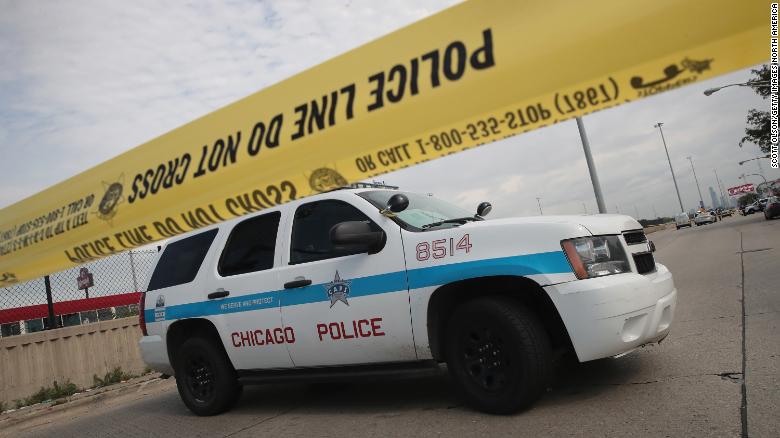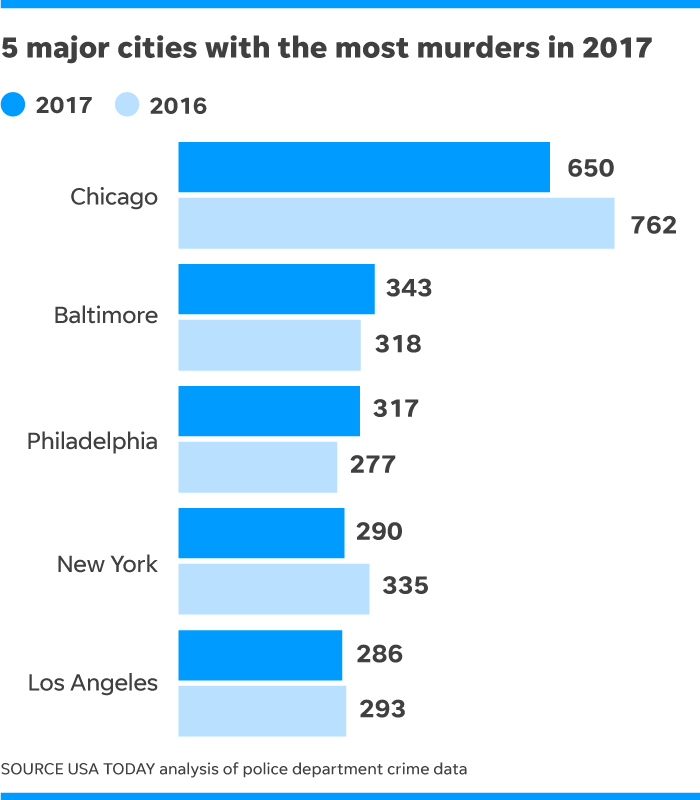Fighting Homicides in Chicago
"The other night, we had three people shot. They all take themselves to the hospital, they don't wait for the cops or the ambulance."
"Then ... they tell us to go 'F' ourselves."
William Evans, former police commissioner, Boston
"These communities have degenerated into a lawless vigilante justice, where people have to get justice on their own terms because the police won't get it for them."
Rev. Marshall Hatch Sr., pastor, New Mount Pilgrim Missionary Baptist Church, Chicago
"That's the norm in this city. We live amongst a lot of killers."
"Ain't nobody been locked up. And they ain't trying to solve nothing."
"It's like I'm half dead and half alive. I'll never be the same again."
Deangelo Norwood, Chicago

Deanangelo Norwood and his brother Omar, were shot at while they stood outside of a Chicago liquor store. Omar died on the spot. Deanangelo was severely wounded. Omar was shot in the back of his head, and Deanangelo was shot in the chest. What followed was 17 hours of surgery to save his life as doctors removed his spleen and part of his liver. He lives now in constant pain, unable to do the most basic tasks for himself, his abdomen stapled, stitched and scarred. And he misses his older brother.
When police showed him a photo, asking him "Is this the guy?" who shot them both, his response was that it might be, but he didn't know the person pictured and he had been unable to get a good look at the assailant with the gun that killed his brother and nearly killed him. Weeks have passed and no one has been arrested for the shooting outside the Chicago liquor store. But that's not unusual in a city where 365 people have been killed before this year is even out.
Over 1,500 people have been shot in Chicago this year and managed to survive. And despite the huge number of homicides, the most of any American city, they are routinely unsolved; non-fatal shootings are given even less chance of the perpetrator being charged than those responsible for fatalities. Chicago police have made arrests in about 17 percent of homicides since 2010, the lowest rate of any city in an analysis of 50 major U.S. cities.
In ten percent of non-fatal shootings Chicago police made an arrest in 2014, 7 percent in 2015 and 5 percent or one in 20 in 2015. This pattern is similar to that of other cities in the United States though no comprehensive national data is available on arrest rates for non-fatal shootings. By comparison in Charlotte, North Carolina police made arrests in 72 percent of homicides, but 30 percent of non-fatal shootings, since 2014.
Chicago police officials point to an improvement in their capacity to solve both homicides and non-fatal shootings by the expedient of heightening relations with the community, the result being that both homicides and non-fatal shootings have decreased in comparison to the same period last year. The department this year made arrests in 44 percent of homicides up from 33 percent last year. "We have been making considerable investments", noted Anthony Guglielmi, police spokesman -- and there are plans to hire an additional 300 homicide detectives for a total of 1,200.
Minority communities tend to produce the most victims and also have a tendency not to trust police with witnesses fearing retaliation for "snitching". There is also concern among victims that if they co-operate with police investigations into the shooting could also serve to reveal other details that could implicate them in a crime. At the same time that witnesses could feel an obligation to co-operate after a killing, in the case of a non-fatal shooting some people might feel it to be "more pragmatic to deal with this in the street justice system".
The back story to the Norwood brothers is that both men served time in prison for crimes committed, but they were determined to go straight once released from prison. Omar had begun dating a woman whose ex-boyfriend had also recently been released from prison. Bad relations surfaced between Omar and the other man. Three of the man's friends had seen the Norwood brothers in the liquor store. An argument outside the store developed into a first fight and one of the men pulled a gun.
The black community living in their ghettos are known to prey on one another; black-on-black crimes are notorious, and often gangs conflict with one another for territory, involved in drug-running and guns, and conflicts and violent actions arise. Residents and witnesses won't get involved with police because they know there will be repercussions placing them in danger, aside from which the police, not the community members abusing them, are viewed as their antagonists.
Low arrest rates result, leaving the community to bitterly complain of police disinterest in solving crimes in the black community.

Labels: Crimes, Guns, Murder, United States

<< Home